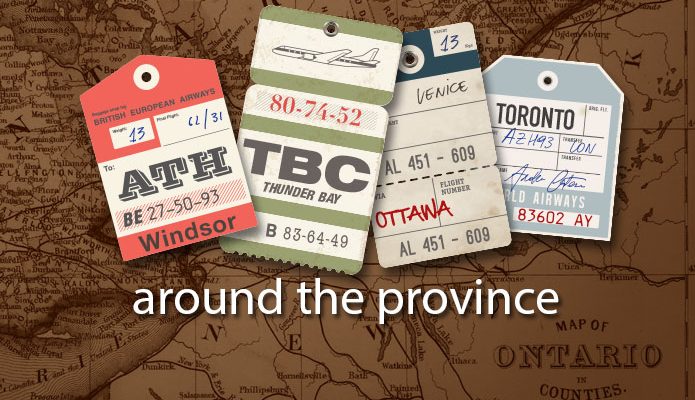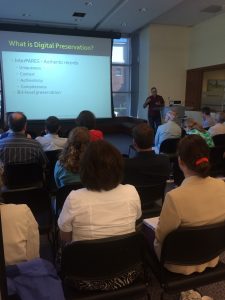
Make It Snappy: Kaleidoscope is a Crowd-Pleaser at Queen’s University
Staff at college and university libraries have a lot to think about, but too rarely have a chance to collectively engage in professional conversations about issues relevant to their professions in a casual environment. In an attempt to overcome this at Queen’s University Library, we convene an annual half-day ‘mini-conference’ called Kaleidoscope. Now in its fifth consecutive year, Kaleidoscope provides a forum to discuss ideas or trends that employees of the library and archives at Queen’s have encountered over the previous year. Interesting posters, talks, conferences and literature, work recently published and sabbatical projects are all candidates for Kaleidoscope presentations.
We use a strategy that maximizes participation without being overly daunting to those less experienced presenting in front of a crowd. Presenters are offered the option to contribute posters, 5-minute “snappers” and the slightly longer “short talks” of no longer than 10 minutes. We consistently recruit a full program of contributors (on average twelve per year) and the overall attendance at Kaleidoscope has been impressive, even with the challenges posed by its being scheduled during the summer.

Photo by Gillian Akenson
We kick off the event with an invited speaker from outside the library giving a 20-minute talk about their own research. While some comments in our post-event surveys suggest that there is interest in having a keynote talk more directly related to our work in the library, most comments have been very positive about the opportunity to hear about local faculty research and have praised the choice of speakers. In general, feedback from those attending Kaleidoscope has been extremely positive.
What is the secret of Kaleidoscope’s success? First, I think the offer to present on whatever staff are passionate about with no prescribed theme is appealing. A speaker’s own excitement about their content is contagious, especially among largely like-minded peers.
Second, all of our presenters follow the principle of “more with less.” We have kept the duration of the talks short in the hopes that the prep work for speakers would not be too onerous considering their already heavy workload. As a result, over 90 per cent of respondents to the feedback survey indicated that the length of the event is “about right.”
Third, with staff distributed among faculty libraries and having a wide variety of specializations, it can be challenging to be aware of and collectively celebrate their professional accomplishments. For example, if someone from our health sciences library presented at the CHLA conference, as a librarian in the Humanities and Social Sciences Library, I would probably not have had the opportunity to hear about it and enter into a potentially valuable professional discourse on the subject. Kaleidoscope has made that discussion far more likely.
If you’re not already doing so, I highly recommend experimenting with a similar event at your library. It must be noted, however, that the basic rule still applies: if you have plenty of snacks and coffee, they will come.
Gillian is currently shared between her roles as Research & Instruction Librarian and Organizational Development & Learning Librarian at Queen’s University.


